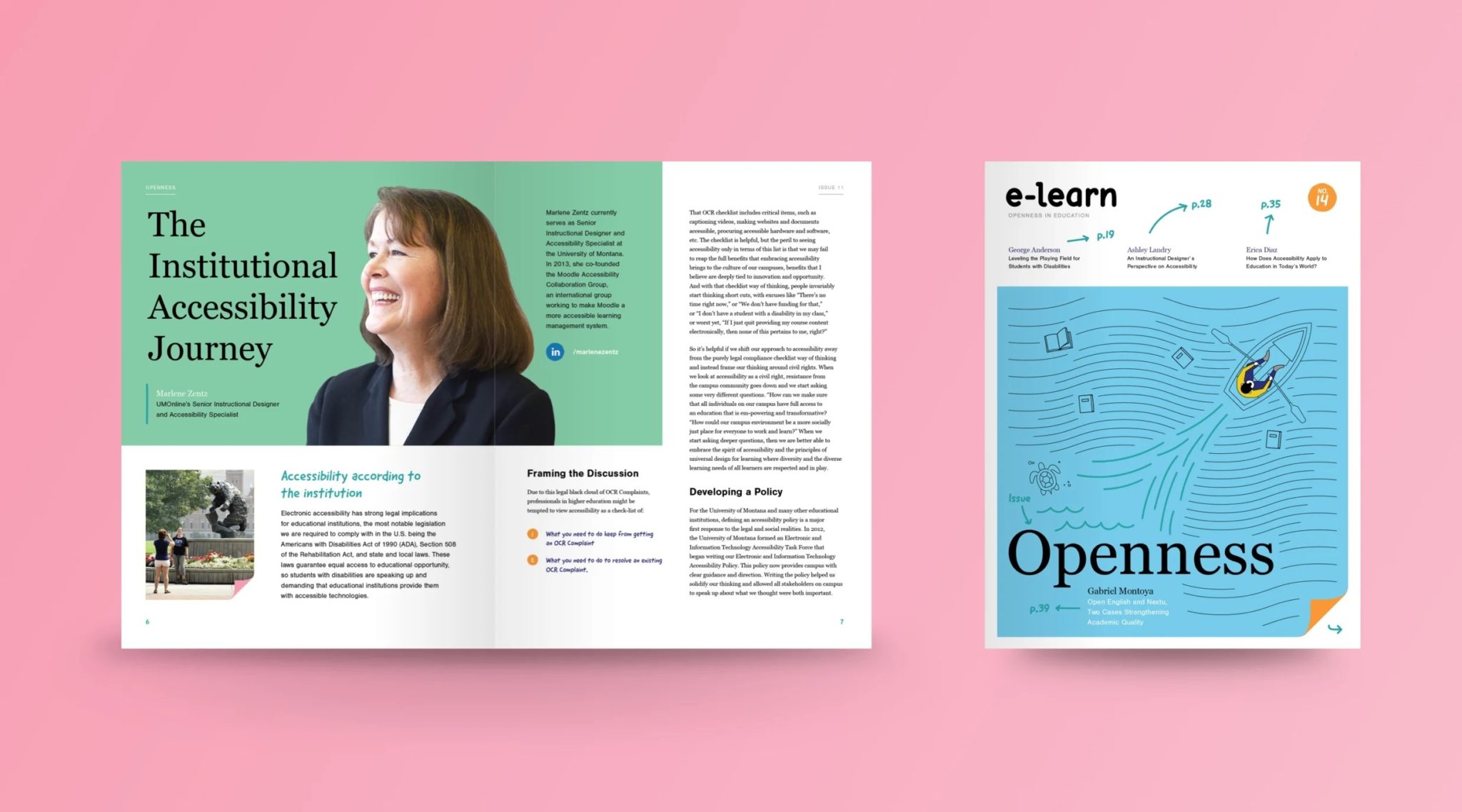
Blackboard and Studio Science engage an audience through an interactive thought leadership platform.
Blackboard, an educational technology company, launched E-Learn, a quarterly magazine covering hot topics in academia. This new magazine was part of a push to shift the company from service provider to thought leader. Response to their new initiative was underwhelming both internally and externally, with many staff members utterly unaware that the magazine existed. Blackboard and Studio Science partnered to create and execute a strategy to increase E-Learn’s engagement levels.

Studio Science began by conducting people-focused research and looking to discover the magazine’s perceptions, both internally and externally. Immediately, we noticed a disconnect. While Blackboard viewed thought leadership in the traditional sense–content and guidance connected to their services–the academic community had an entirely different definition–with content as the first step of many. For them, thought leadership isn’t about providing information, but facilitating intelligent discussion and creating opportunities for participation. Educators preferred content with a grassroots approach, which didn’t match E-Learn’s sleek and carefully constructed quarterly publication.
“What we identified was a perceived value misalignment between educators and E-Learn Magazine. It was too self-focused — the purpose, the content, the language — and it created some negative feelings among higher education audiences. Even though it was labeled E-Learn, the final output was a prototype of who Blackboard could be and it became the model for how to engage with higher education audiences.”
Casey Gawthrop Director of Research and Strategy
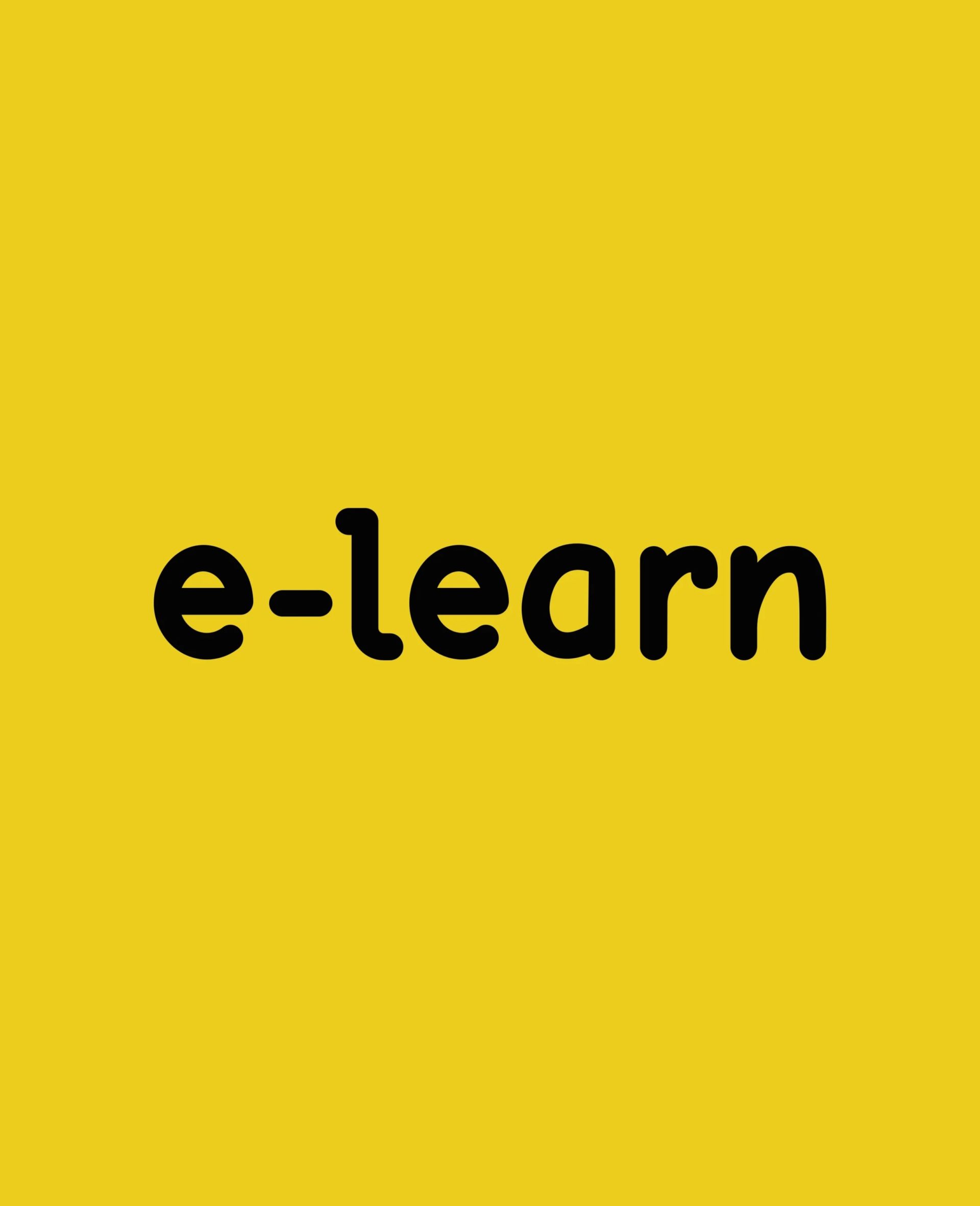
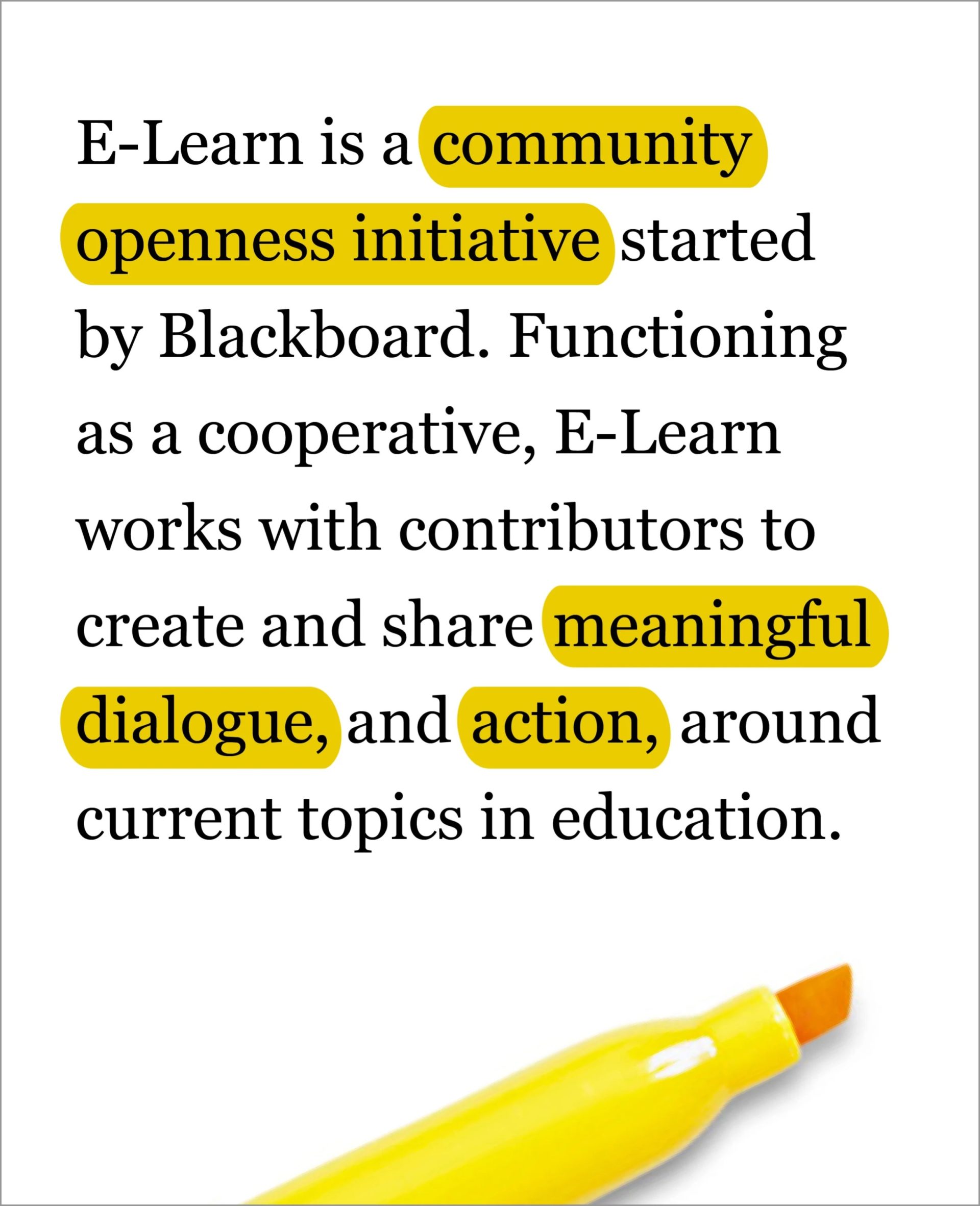
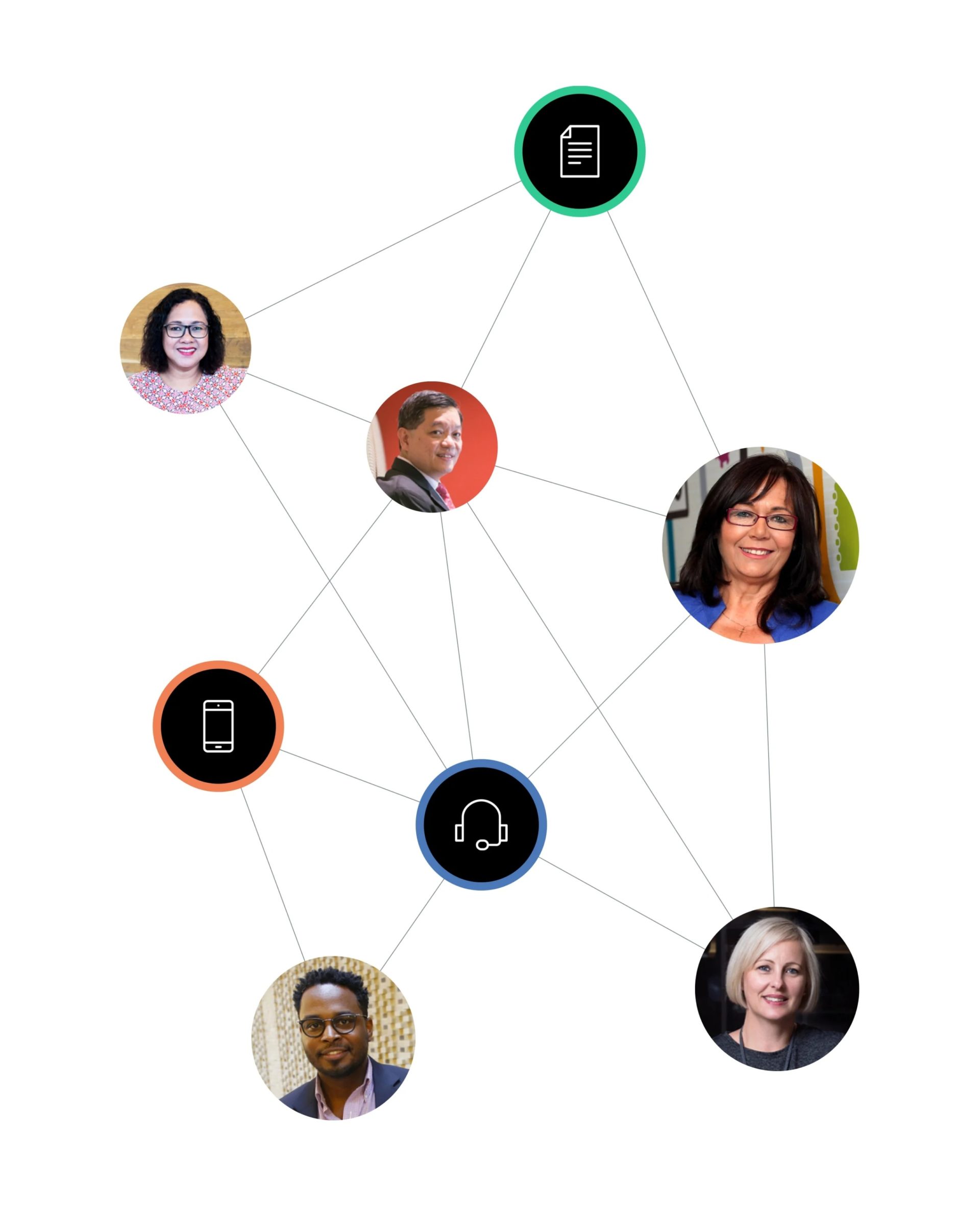
After this revelation, the answer was clear. E-Learn wasn’t a magazine. It was an initiative. Studio Science advised Blackboard of this new definition and set off to create an environment for professional development in the academic world. While the first iteration of the new E-Learn platform would contain the magazine’s previous content, we knew the future content would need to take an entirely different approach. We continued our research, zeroing in on the types of content higher education leadership, administrators, and faculty seek out. Based on this qualitative data, we created an editorial strategy for E-Learn, outlining the most relevant topics, contribution types, and content mix.
Studio Science formalized the evolved purpose with brand messages and defined visual language. We expressed the contributive nature of the platform through a whiteboard-like design. Elements like hand-drawn arrows and sticky note shaped call-outs give the brand a feeling of continual iteration. We completed the groundwork, then rebuilt the E-Learn website and print publication from the ground up and created the strategy to support both the internal and external rollouts.
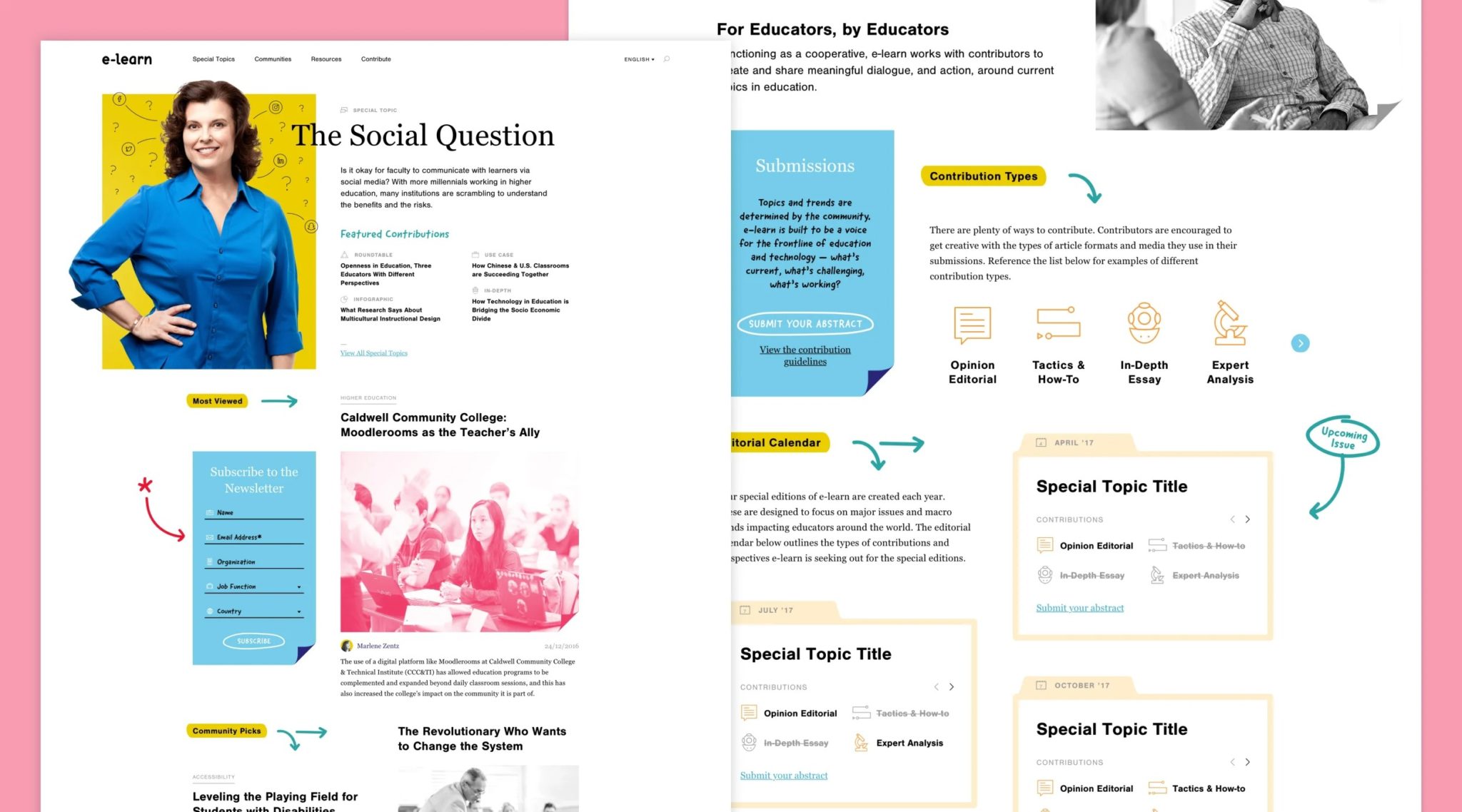
E-Learn has become a vital resource for anyone in the higher education sector. Once Blackboard learned how to speak their audience’s language, the platform and publication began to take hold. The content they publish reflects the critical drivers of their customers’ identities and careers and resonates with them. The publication has attracted the attention of many well-respected contributors, including former Second Lady, Jill Biden.